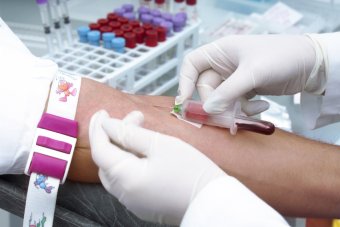Serious ill patients are missing out on clinical trials due to red tape, according to cancer research and advocacy groups.
After exhausting all other avenues, many people with serious diseases seek to be part of clinical trials, in the hope the test drugs will provide a cure, but often miss out on trial participation due to the difficulty in getting trials approved.
A survey of 675 blood cancer patients, carried out by the Leukaemia Foundation and Myeloma Australia, showed 40 per cent of patients have tried to access new medicines that are not subsidised on the Pharmaceutical Benefits Scheme.
Those patients who were successful accessed new medicines through clinical trials.
Myeloma Australia CEO Steve Roach said he wants access for patients to future trials to be boosted, but there are obstacles preventing this.
“There’s a very heavy bureaucracy around getting clinical trials up and going in Australia,” Mr Roach said.
“Hospitals have to get ethics approvals, so their ethics committees have to approve each and every trial individually.
“So any major hospital, be it Royal Prince Alfred in Sydney or the Royal Melbourne in Melbourne, may have already approved that trial and say it’s a good trial to go ahead but the next hospital along the line has to get the same approval through their internal process and we think that that isn’t necessary.”
Last month the Government announced a clinical trial registry to help connect patients to new medical trials but Mr Roach is calling for a national ethics approval process.
“That would surely speed up the process and make many more hospitals likely to run the trials and therefore have them more widespread and available to more patients,” he said.
The chair of the Australian Health Ethics Committee Professor Ian Olver agrees the next step to boost patient access to new drugs would be to streamline the approval process.
But he said making that happen would require agreement between the Commonwealth and the states.
“What hasn’t been streamlined at this stage is the sort of governance issues and the due diligence process on each of the trials in terms of the legals and insurance, each of the health units still want to do that themselves,” Mr Olver said.
“But each of the states would have to agree to this to be able to make it happen.”

